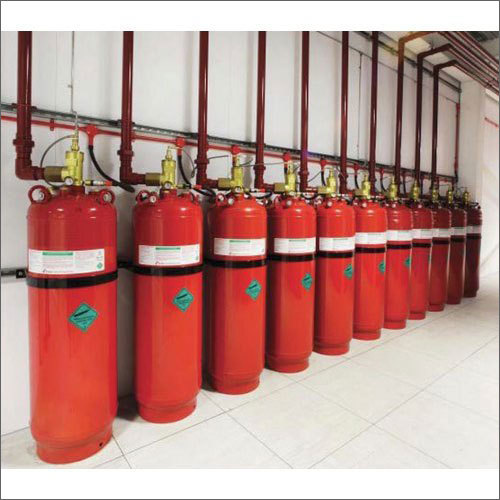We have carved a niche in dealing a comprehensive range of Mild Steel Novec 1230 Fire Suppression System. It is useful to provide a safe protection to fire suppression. This system is mainly used to control fire. It is efficient and reduces downtime through easy clean-up. It is easy to set up and fix with gas pipe. It minimizes the amount of damage caused by smoke.
Here are some key advantages of fire suppression systems:
1. Rapid Fire Control: Fire suppression systems are designed to quickly detect and suppress fires, often within seconds of ignition. This rapid response can help prevent fires from spreading and causing extensive damage.
2. Life Safety: The primary goal of any fire suppression system is to protect human life. By suppressing fires early, these systems can provide occupants with more time to evacuate safely.
3. Property Protection: Fire suppression systems help protect buildings, equipment, inventory, and valuable assets from fire damage. This can significantly reduce property loss and business interruptions.
4. Reduced Fire Damage: Prompt fire suppression can minimize the extent of fire damage, reducing repair and replacement costs. This is especially critical for historical buildings, irreplaceable artifacts, and sensitive equipment.
5. Lower Insurance Costs: Many insurance companies offer discounts on premiums for properties equipped with fire suppression systems. These systems demonstrate a commitment to safety and risk reduction, which insurers often reward with lower rates.
6. Compliance with Regulations: Fire suppression systems are often required by building codes and regulations, especially in commercial and industrial settings. Compliance with these codes is essential for legal and liability reasons.
7. Minimal Water Damage: Modern fire suppression systems, such as clean agent systems or water mist systems, use agents that minimize water damage compared to traditional sprinkler systems. This can be crucial for preventing secondary damage to sensitive electronics or irreplaceable documents.
8. Environmental Considerations: Some fire suppression systems use environmentally friendly agents that do not deplete the ozone layer or contribute to global warming. These systems are safer for the environment compared to older halon-based systems.
9. Automatic Operation: Fire suppression systems can operate automatically, even when the building is unoccupied. This ensures that fires can be addressed 24/7, reducing the risk of fire-related losses during non-business hours.
10. Reduced Firefighting Risk: Fire suppression systems can reduce the risk to firefighters by containing or extinguishing fires before they become large and uncontrollable. This enhances firefighter safety and effectiveness.
11. Customization: Fire suppression systems can be tailored to specific fire risks and hazards in different settings. For example, industrial facilities may require specialized systems to handle unique fire risks.
12. Peace of Mind: Knowing that a reliable fire suppression system is in place can provide peace of mind to property owners, occupants, and business operators, helping them feel more secure in their surroundings.
